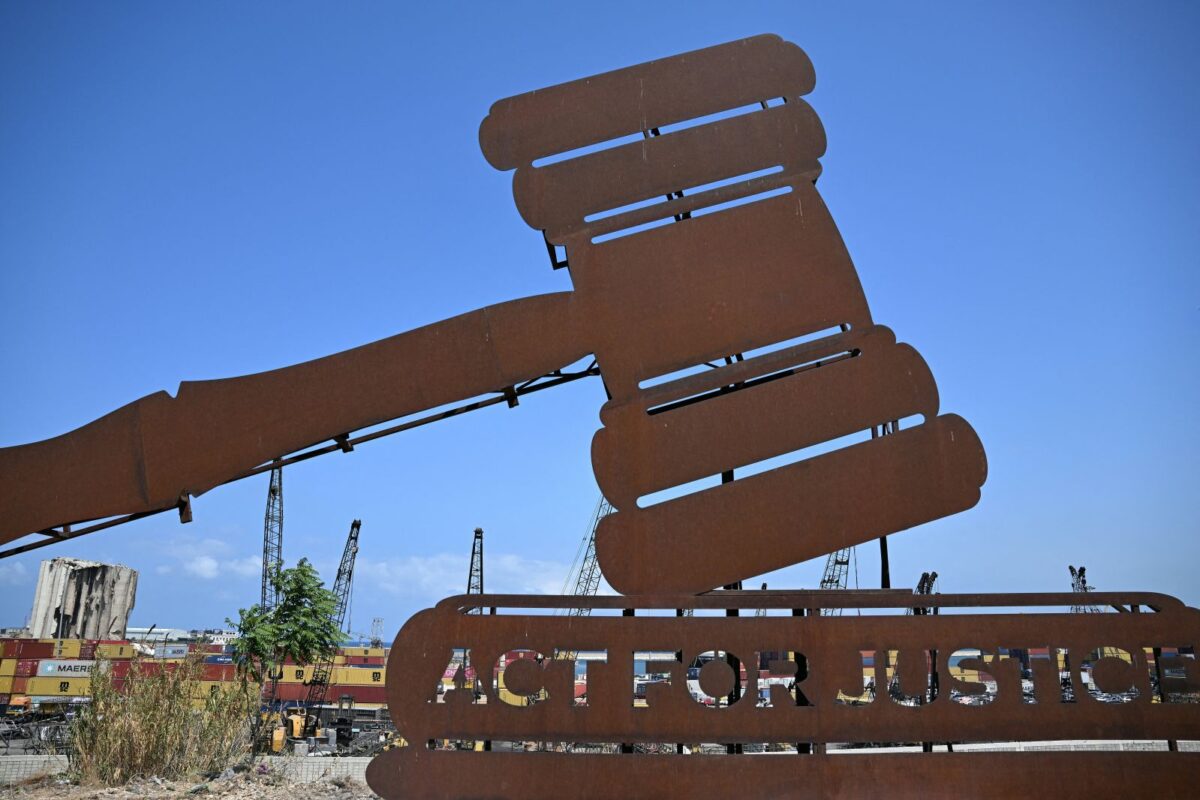
August 4, 2025, has come around again with a feeling of disappointment, sorrow and grief, marking five years since the explosion that tore the Port of Beirut and left the city in ruins and a whole nation in mourning
Mothers and fathers, siblings and friends who lost victims in the explosion are still asking the same haunting questions: Who killed them? Who allowed thousands of tons of ammonium nitrate to be stored in the heart of the city? Who covered it up, who looked away, and who profited?
Collective damage & unhealed wounds
Roughly 200 people lost their lives that day, and more than 6,000 were injured. The explosion caused widespread destruction, hitting homes, businesses, and key infrastructure across Beirut.
According to a report by the Order of Engineers and Architects in Beirut, about 2,500 buildings were directly affected: 300 are still at risk of collapsing, 250 suffered structural separations, and another 550 developed serious cracks requiring urgent repairs.
The economic damage was also massive, estimated at nearly 15 billion dollars. Most of the losses hit the port facilities, but the destruction also extended to roads, water and power networks, and sewage systems. It wasn’t just a blast.
Beirut Port Blast Investigation: Five years on, still no justice
It’s been five years since one of the deadliest non-nuclear explosions in modern history rocked Beirut on August 4, 2020.
And yet, five years later, no one has been held accountable, and despite numerous public protests and calls for justice, families of the victims are still waiting for answers.
Why has the investigation achieved nothing?
The first judge appointed to the case in 2020 was Fadi Sawan. He tried to question several former ministers, Ghazi Zeaiter, Youssef Fenianos and Ali Hassan Khalil. Soon after, two of them challenged him in court, claiming he was biased. In February 2021, Lebanon’s Court of Cassation removed him from the case.
Judge Tarek Bitar was then appointed to take over. He summoned ministers, top security officials, former prime ministers, and even sent questions to President Michel Aoun. But legal challenges quickly piled up, and the investigation stalled again.
In January 2023, Public Prosecutor Ghassan Oueidat, who was himself accused in the case intervened. He released all 17 people detained in connection with the explosion and filed charges against Judge Bitar. Since then, the investigation has been on hold, and Bitar has not been able to resume his work.
They used a legal loophole in Lebanon’s judicial system that suspends a judge’s authority if a defendant formally challenges their impartiality.
The succession of Oueidat was anxiously awaited by the families of the blast victims, in the hope that Tarek Bitar would be able to take over the investigation.
In February 2025, Judge Tarek Bitar, the lead investigator in the case, announced he was resuming the stalled investigation. In a bold move, he summoned several new high-ranking security officials and civil servants suspected of involvement in the explosion or its cover-up. However, to this day, not a single high-ranking official has been held accountable.
That decision seemed to reignite some political will. The Prime Minister, speaking from Baabda Palace, reaffirmed his commitment to delivering justice for the victims and their families. The Minister of Justice also expressed readiness to remove any legal obstacles blocking the investigation.
MENA Rights Group, along with 17 other human rights organizations and families of the victims of the August 2020 port explosion, has urged the Prime Minister and Justice Minister to take all necessary measures to ensure the investigation moves forward without interference.
They called on the government to lift the legal and political obstacles that have blocked Judge Tarek Bitar from continuing his work. This includes making key judicial appointments and removing the immunities that protect state officials from accountability, in line with Lebanon’s international obligations to uphold judicial independence.
Journalist and judicial affairs expert Yousef Diab says there’s movement behind the scenes and believes the truth will eventually come out, no matter how long it takes.
The Role of International Judicial Support
Amid the legal gridlock, international cooperation has provided a much-needed boost. A French judicial delegation recently visited Beirut and held a series of meetings with both Judges Bitar and Al-Hajjar.
The meetings were part of ongoing judicial coordination between Lebanon and France, with both sides exchanging findings, data, and expertise. The French side even handed over results from its own investigation abroad, and requested further information from Lebanese authorities to complete its technical report.
After five years of pain, obstruction, and silence, there may finally be movement on the legal front. But for victims’ families and the Lebanese public, real justice still feels far away as they question whether this renewed effort will lead to answers or accountability.
No Trust
“How can we trust a state that killed its people by hiring unqualified officials to manage public safety at the port? Those same people knowingly stored ammonium nitrate for seven years, fully aware of the danger,” said George Akiki to NOW, who suffered serious injuries in the blast, including a broken hip that left him in months of physiotherapy. He also lost a close friend in the explosion, adding to the pain he continues to carry.
He stresses that the families are not targeting just anyone, they are pointing fingers specifically at those obstructing justice and those who are refusing to be held accountable.
A Politicized Judiciary and a Broken System
Maria 32 years old Lebanese nurse who still has nightmares from the day of the explosion, where the hospital she works at was flooded with injured people and whose cousin had also passed away whilst at work on the day of the explosion, insists that Lebanon can’t move forward without an independent judiciary, one that serves justice, not politics.
Maria told NOW: “We’ve been protesting in front of the Justice Palace for five years now. All we’re asking for is the truth.”
“It doesn’t matter what triggered the explosion, whether it was foreign sabotage, a fire, or something else, the real issue is why this highly explosive material was stored at the heart of the city in the first place,” Maria said.
“We’re grieving, but also furious. We won’t stop demanding to know who killed our families,” she added.
Rodayna Raydan is a Lebanese-British journalist. You can follow her on Twitter @Rodayna_462
The views in this story reflect those of the author alone and do not necessarily reflect the beliefs of NOW.








